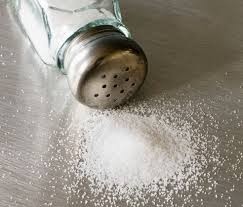New studies show need for salt reduction: CASH

Both studies reveal that modest reductions in salt intake lower blood pressure without adverse effects, claimed CASH.
They also underline that lower salt intake is associated with major reductions in strokes and heart attacks, the most common cause of death and disability in the UK, it added.
A third study also published in today’s British Medical Journal shows that increasing the intake of potassium – which is mainly found in fruit and vegetables – lowers blood pressure and reduces strokes, said CASH.
It claimed there was evidence that combining a reduction of salt intake with an increase in potassium was likely to have the greatest effect.
‘Substitute salt with potassium’
CASH said: “In the rare cases where reducing salt is technically too difficult, it is recommended that manufacturers substitute salt with potassium.” The addition of potassium in the past has sometimes been associated with a bitter taste in food.
The latest research highlighted the need for government action, said Graham MacGregor, professor of cardiovascular medicine at the Wolfson Institute, Barts and London Hospitals, and CASH chairman.
“These studies show that it is absolutely vital that the government forces the food industry to gradually reduce the amount of salt it adds to our food by setting new targets,” said MacGregor.
“80% of our salt intake is already hidden in food, that is the majority of consumers have no choice. If the food industry does not cooperate then the government must legislate, as has occurred in other countries, such as Portugal and South Africa.”
British Heart Foundation senior heart health dietitian, Victoria Taylor, agreed salt reduction was important but only part of the solution to improved heart health.
Healthier heart
“This research suggests holding back on salt and eating more food containing potassium may be a recipe for a healthier heart,” said Taylor.
“Making sure you manage five portions of fruit and veg a day is an easy way to boost potassium levels. There are plenty of other potassium-rich foods out there too, such as pulses, fish and shellfish, nuts, seeds and milk.
“But don’t forget that what’s on your plate isn’t the full picture. Keeping an eye on your alcohol intake and keeping physically active will also help to reduce your blood pressure and protect your heart.”
The blood pressure changes resulting from salt reduction could prevent about 2.5M deaths a year worldwide and many strokes and heart attacks, said CASH.
In the UK, salt targets have been cut by 15% from 9.5g/day to 8.1g/day, saving a minimum of 9,000 deaths from strokes and heart attacks, it claimed.
Current UK recommendations are to reduce salt intake further to 6g/day, which CASH claimed would save more than 23,000 deaths a year.
The UK’s salt reduction programme has saved £1.5bn in health care costs a year, according to the National Institute for Health and Clinical Excellence.
BMJ research studies published today
‘Effect of longer term modest salt reduction on blood pressure: Cochrane systematic review and meta-analysis of randomised trials’.
‘Effect of lower sodium intake on health: systematic review and meta-analyses’
‘Effect of increased potassium intake on cardiovascular risk factors and disease: systematic review and meta-analyses’















